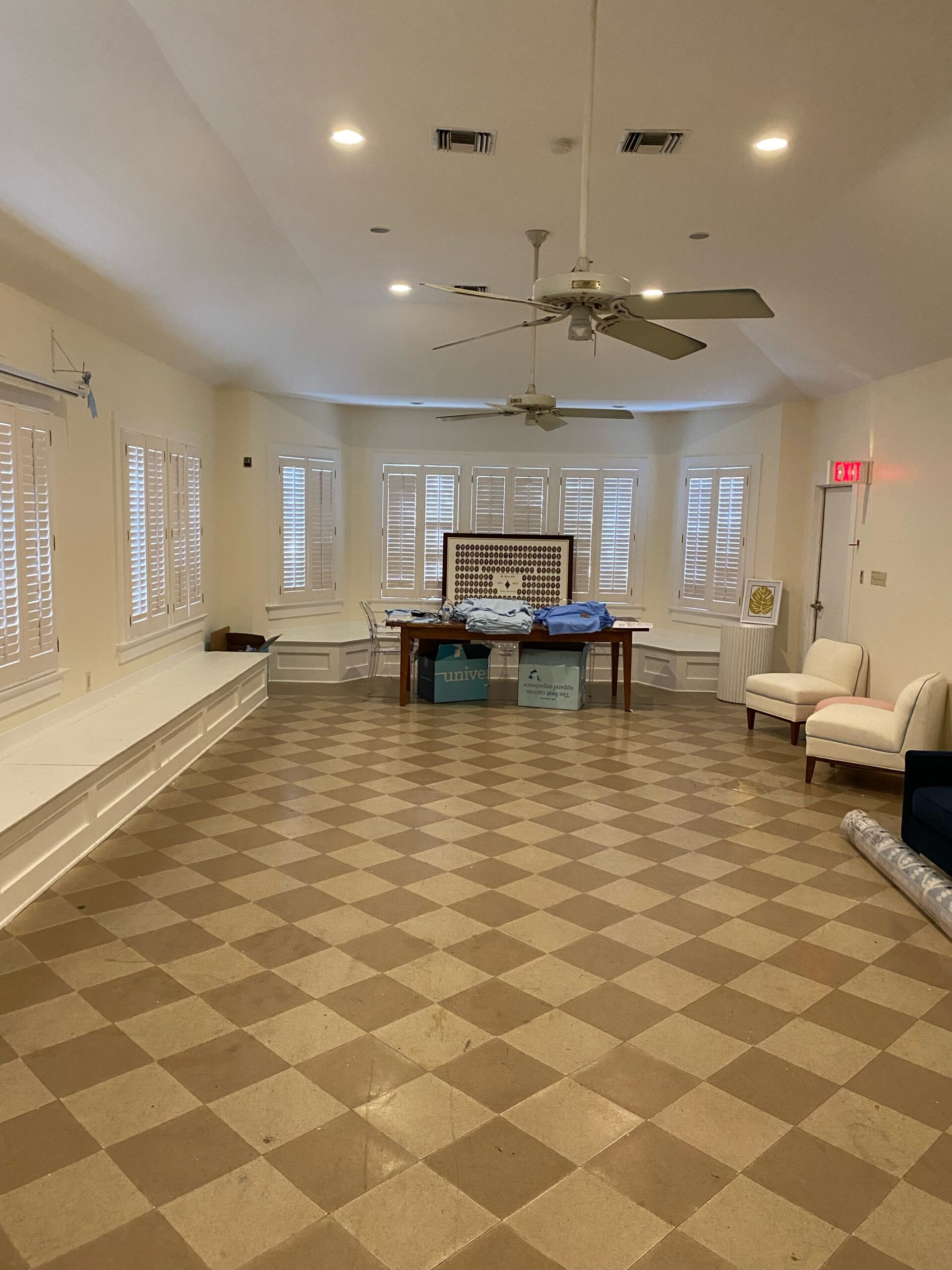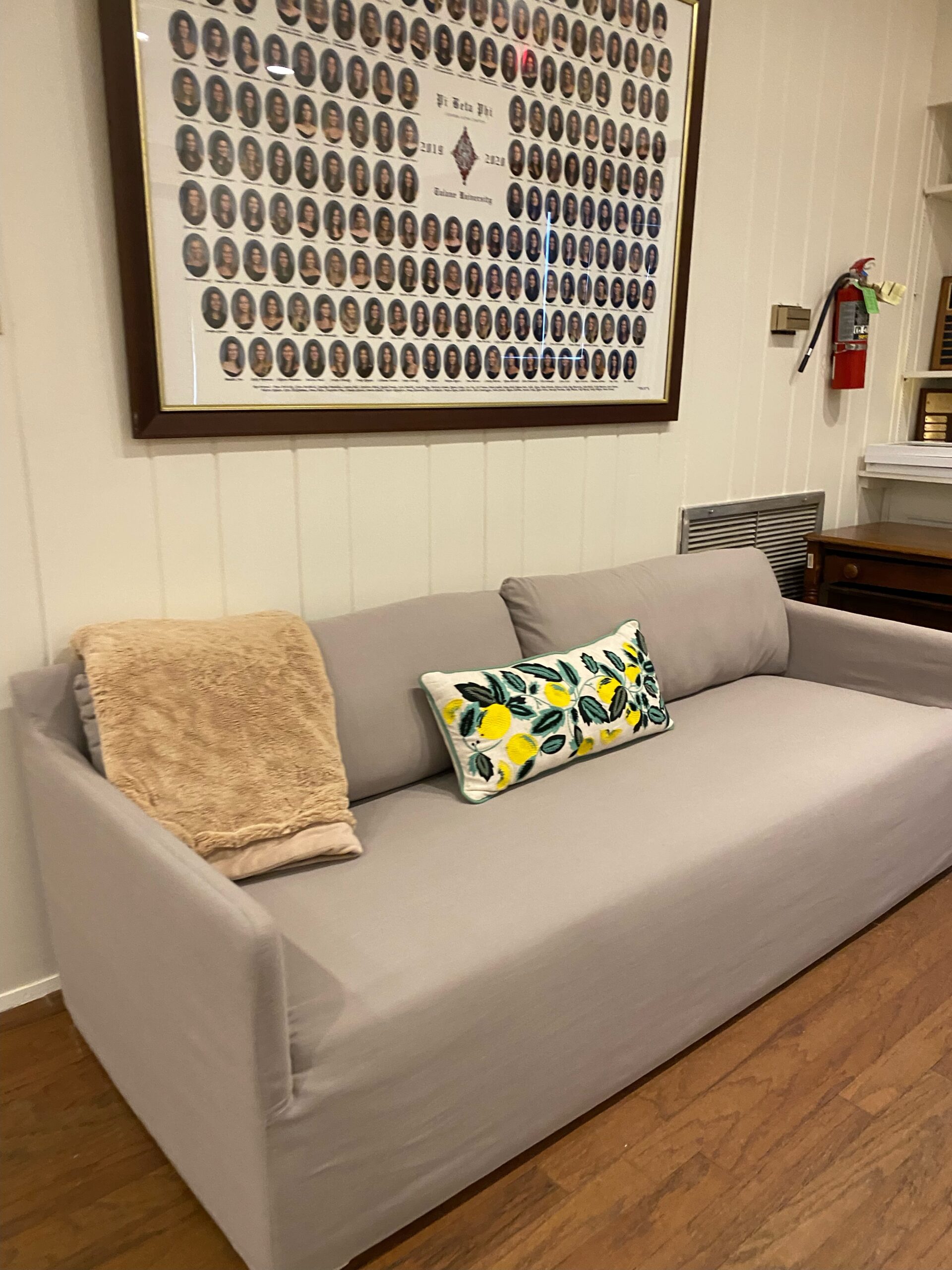Coming to Tulane not knowing a single other individual, I found myself consumed by the overwhelming size of my classes, as well as the recurring notion of not belonging. Beginning to become more situated in Tulane’s social atmosphere, I was able to move in with a new friend, who soon became my sidekick. Attached at the hip, we traveled in and out of friend groups, never finding our place. Yet, once a rush week came into fruition, we found ourselves understanding that we too had a place here, and felt welcomed in an incredible community of women, similar to ourselves; Pi Beta Phi soon became our home.
According to social media, magazines, TV, etc., sororities are associated with stereotypes that discuss women who join sororities are partiers, dumb, rich “daddy’s girls”, and shallow/ materialistic as well as fake/ not service-oriented. These stereotypes focus on the negative aspects of college students, and many movies that are extremely popular encourage these stereotypes (like The House Bunny, Legally Blond, and American Pie). Once an individual joins a sorority, they are often found to form a group identity. Finding a group to identify with allows individuals to feel part of something, and assists them in forming new relationships. But when the individual joins a group, they are faced with combating the stereotypes of their new organization, no matter the accuracy of the stereotype.
Originally created to give women an entity with which they could be a part of, sororities were formed due to women’s exclusion from male activities/ groups on college campuses. A part of joining a group comes with Henri Tajfel’s idea of social identity theory which is a person’s sense of who they are based on their group membership. Pi Phi encapsulates the values of integrity, commitment, honor and respect, personal/ intellectual growth, philanthropic service to others, and sincere friendship. As a member of this establishment, I feel as though I resonate with these values, and strive to incorporate them into my daily life in order to be a better version of myself.

The writer with her fellow executive council who are in charge of recruitment in the Spring (Photo by: Me).
A sorority house includes but is not restricted to a communal space (for philanthropy and sisterhood events, chapter, informational presentations, etc.), a lounge area, and a kitchen. This home is a place where members can go no matter the time of day – whether this is for food, studying, taking a break from the outside world, or socializing with fellow members. The structure of the Pi Phi house begins with a porch, following the main doorway that leads into the couch area, and a long hallway that connects the kitchen to the open communal area. While some sororities provide housing for their members, sororities on Tulane’s campus do not, which disproves the media’s stereotypical concept of sororities. No members live in the houses, and they come to the house to strengthen their bonds with each other and meet over common interests, not just to sleep. The house provides collaboration, comfort, and bonding which ultimately leads a member to become more confident in themselves and their relationships with others.
When an individual feels confident, they feel secure in themselves and their abilities. A sense of confidence enables one to feel prepared for challenges they may face and helps them rely on their strengths and skills in order to persevere. College students face extreme hardships during this instrumental period of life, as this time of significant change causes stress, a result of an individual’s perceptions that they do not have the resources to cope with a perceived situation which may be social, academic, future, or career-oriented. While these pressures are unconsciously reoccurring, the presence of a sorority mediates these stressors, as it offers resources, a source of stability, belonging, and allows members to feel confident/ prepared to take on challenges they may face.
In my sorority house, there is a congregation area covered in photos of past and present members, which consists of immense open floor space, seating, and a projector, utilized for chapter, recruitment, presentations, collaborative activities, and a space to work together to form engaging events. Confidence is directly formed through collaboration and teamwork. As members begin to talk to each other here, individuals involved begin to believe that they are part of an effort and people’s confidence builds as their team’s collective effort produces positive outcomes. My chapter works to inspire a lifelong love of reading since it can unlock true potential, creating a more literate and productive society; today, Pi Phi’s participate, donate and advocate literacy through our Read > Lead > Achieve reading initiatives (our philanthropy). Through our fundraiser events held in the chapter room, Pi Phi aids volunteers in distributing books to children in need across the country. Group work improves social and interpersonal skills and provides members with the notion that they can host these successful philanthropy events and work with various types of people, developing their leadership skills. All members of the chapter are involved and have a meaningful impact on our fundraising, growing their self-confidence.

The large communal space in the author’s Sorority house (Photo by: Me).
The couch area in Pi Phi provides members with comfort and security. When you feel safe and secure, you can experiment or explore, but you still feel a sense of control over yourself and your environment. Hygge is a concept that originated in Danish culture that focuses on living with a sense of comfort, coziness, and peace. Our lounge room is full of four comfy couches and an abundance of pillows and soft grey blankets that have lived in the house for years, providing a sense of calmness making members feel less anxious. The scent of the stonewall honey-vanilla candles which are continuously lit throughout the day fills the lounge area with warmth. When we feel this notion of being emotionally safe, we are likely to reach out to build and nurture connections with others, as well as to take more risks and be more open to practicing vulnerability with others. Members are always relaxing, talking, laughing, and enjoying the couch space; the aura of the space is comfortable, enabling one to have the confidence to talk to those around them.

The author’s favorite couch in the Sorority house (Photo by: Me).
As the current Director of Member Experience and soon to be President of Pi Phi, I recently was able to present my sorority to 300 potential new members at our Preview Night. Standing next to the senior Recruitment Chair, I talked to apprehensive individuals searching to understand my passion for this organization. I not only spoke about the bonds that I have made through Pi Phi but also how I gained the skills that have provided me with my fundamental feeling of confidence, permitting me to become a leader. I, as well as the members of Pi Beta Phi, are strong, resilient women, who continue to refute the media’s stereotypical representation of sorority members. My sense of belongingness, stability, courage, and empathy due to this community of incredible women has empowered me to have unwavering self-confidence; as the presenter, my stories (hopefully) allowed the potential new members to see how they too can become more confident through joining something bigger than themselves, which may mean becoming a member of Pi Phi.
 NOLAbeings
Multimedia artist Claire Bangser created NOLAbeings as a portrait-based story project that marries...
NOLAbeings
Multimedia artist Claire Bangser created NOLAbeings as a portrait-based story project that marries...
 Data corner: Adobe Suite (create a PDF, social media graphic, presentation, edit a photo and video
Data corner is where you go to work with analytics and top tech skills. It takes on everything from PERL and SQL to Canva and Sprout Social.
Data corner: Adobe Suite (create a PDF, social media graphic, presentation, edit a photo and video
Data corner is where you go to work with analytics and top tech skills. It takes on everything from PERL and SQL to Canva and Sprout Social.
